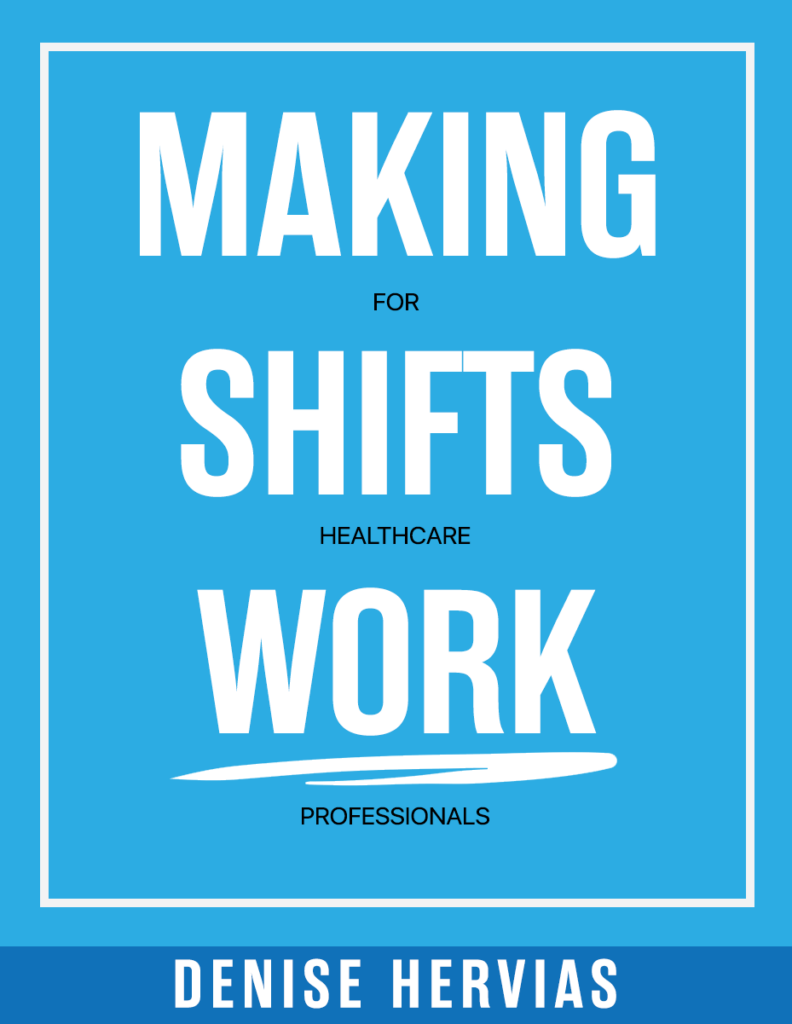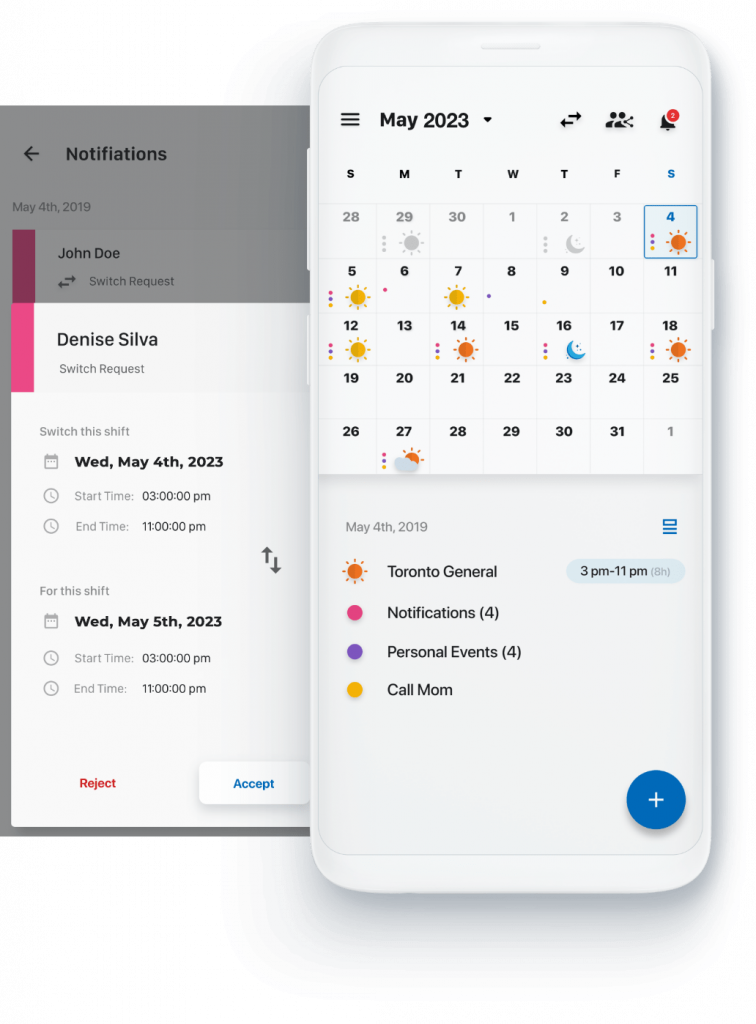Are you a shift worker struggling to manage your work life balance? You are not alone. Many shift workers struggle to find a balance between their professional and personal life, often sacrificing time with family and friends or their own wellbeing. But it doesn’t have to be this way. There are practical steps shift workers can take to make the most of their free time and be available for important life events. In this blog post, we will cover 7 effective ways shift workers can achieve work-life balance.
1) Get adequate sleep
Shift work can make it hard to get enough rest, but it’s essential for your health and well-being. In order to ensure you’re getting enough sleep, it’s important to set a regular sleep schedule and stick to it. Try to maintain the same sleep schedule on the days that you are working and the days you are off, if possible. This will help to regulate your circadian rhythm and ensure that you are well-rested and alert while at work. Additionally, make sure you avoid caffeine and alcohol close to bedtime and limit distractions like television or phone usage when trying to fall asleep. Getting enough sleep while working shift work will help you feel energized and better able to focus on your job.
2) Exercise regularly
One of the most important things that shift workers can do to maintain a healthy work-life balance is to make sure they are exercising regularly. It can be difficult to find the time and energy to exercise while working a busy shift, but it is essential for long-term health and well-being. Making time to exercise while on shift work is key to feeling energized and preventing burnout.
If you work night shifts, consider making time to get some fresh air or light exercise during your breaks. Research shows that short bouts of exercise can improve focus, alertness and energy levels. Even something as simple as a short walk or stretching session during your break can help to give you a boost of energy. If you have access to a gym at your workplace, take advantage of this by going for a workout after your shift.
On days off from shift work, try to plan out regular exercise sessions. Exercise can help to reduce stress, improve sleep quality and help you to be more productive during your shifts. Consider taking up activities such as yoga, swimming or running to help maintain a good work-life balance. Try to avoid overtraining or pushing yourself too hard as this can lead to fatigue and injury.
Exercising regularly is key to achieving a successful work-life balance while doing shift work. With the right attitude and commitment, you can stay healthy and productive during your shifts.
3) Take breaks during your shift
For those who work shift work, taking breaks during your shift is essential. Breaks are not only important to refresh your mind and body, but they can also help prevent burnout. Taking regular breaks can give you the energy you need to stay focused and productive while on the job.
When taking a break, be sure to step away from the task at hand and allow yourself time to recharge. This could include taking a short walk outside, grabbing a cup of coffee, or doing some light stretching.
Anything that can give you a mental and physical break from your shift work can be beneficial. Make sure you take enough time away from your job to give yourself the break you need.
Additionally, it is important to practice self-care when taking breaks from shift work. Take the time to do something that helps you relax and refocus. This could include anything from reading a book to engaging in a hobby. Having activities to look forward to during breaks can help you feel rejuvenated and make it easier for you to return to your duties.
Shift work can be physically and mentally draining, so it is important to make sure you are taking the necessary steps to maintain your health and well-being. Taking regular breaks throughout your shift is an easy way to ensure that your mind and body get the rest they need while on the job.
4) Use your days off wisely
For shift workers, taking advantage of days off is essential for maintaining a healthy work-life balance. While your free time may be limited, it’s important to use this time wisely. Here are some tips for how to best use your days off when working shift work:
- Plan ahead: Make sure to plan ahead and set specific goals for the days off you have available. This could include tasks such as grocery shopping, cleaning your house, or catching up on errands. Try to make a list of activities you want to do and prioritize them based on importance.
- Make time for yourself: Days off are a great opportunity to take care of yourself. Whether it’s catching up on your favorite TV show, going for a walk, or reading a book, it’s important to spend some time doing activities that make you feel relaxed and recharged.
- Spend quality time with family and friends: With the long hours associated with shift work, it can be difficult to make time for family and friends. Utilize days off to connect with those you care about and engage in meaningful conversations.
- Take breaks: After working long shifts, it can be hard to focus when you finally have time off. Make sure to take breaks throughout the day and do something relaxing like listening to music or playing an instrument.
Shift work can be tiring and exhausting, but using your days off wisely will help you maintain a healthy work-life balance and stay productive when you’re on the job. Prioritize your self-care, spend quality time with family and friends, and make sure to get enough rest so you can tackle your shift work schedule with ease!
5) Set boundaries with friends and family
Shift work can be a challenging lifestyle. It can be difficult to maintain relationships with friends and family when work schedules change constantly. To help manage the expectations of loved ones, it’s important to set boundaries and communicate them with your loved ones.
It’s essential to talk openly and honestly about the challenges that come with shift work. Let your family and friends know the reality of your job. Be clear that you may not be able to answer the phone or reply to texts while you’re on duty. Communicate in advance when you’re available to talk and make time for important conversations. Explain that if you have to work on holidays or special occasions, you can arrange a time to celebrate when you’re off-duty.
Ask friends and family for their support and understanding. Explain that by setting boundaries you will be able to better manage your responsibilities and take care of yourself. While it’s important to stay connected, it’s just as important to create space for yourself. Show your loved ones that you value their support and recognize the challenges that come with shift work. With clear communication and understanding, shift workers can create healthy work-life balance.
6) Prioritize your mental health
It can be difficult to take care of yourself when you’re working a shift job. Between the demands of your job and all the other things you have to do, it can be hard to find time to focus on yourself. That’s why it’s so important to prioritize your mental health while working a shift job.
One way to prioritize your mental health is to practice mindfulness and stress-reducing activities. Take a few minutes each day to focus on your breathing, practice yoga or meditation, or do something creative like drawing or painting. This will help you relax and reduce the stress associated with shift work.
Another way to prioritize your mental health is to plan for downtime and make sure that you get enough sleep. When you’re working a shift job, it can be difficult to get the recommended 8-9 hours of sleep every night. Try to build in some rest time into your schedule and make sure you get enough sleep even if it means going to bed earlier or taking naps during the day.
Finally, be sure to check in with yourself regularly. Ask yourself how you’re feeling, both mentally and physically. Pay attention to any signs of burnout or fatigue and make sure to address them quickly. Taking care of your mental health while working shift work will help you stay focused and productive in the long run.
7) Stay Orgainzed and Plan in Advance
Shift workers have unique scheduling needs and as such, staying organized and planning ahead is essential. The key to successful shift work is having a plan and sticking to it. Here are some tips on how to stay organized and plan in advance:
- Plan out your day-to-day schedule: With a shift work schedule, it can be difficult to make plans due to the constantly changing hours. To make it easier, it’s helpful to plan out your schedule in advance so you know what to expect from day-to-day.
- Write down tasks and goals for the day: It can be difficult to stay motivated when working a long shift. Writing down tasks and goals for the day will help keep you focused and on track.
- Prioritize rest: As a shift worker, it’s important to prioritize rest and make sure you get enough sleep between shifts. This will help you stay alert and focused while on shift.
- Get organized: Make sure your workspace is organized, so you can easily find the tools and materials you need. This will help you move quickly during your shift and maximize your productivity.
- Connect with coworkers: Connecting with your fellow shift workers can make shift work more enjoyable. Try connecting with them through social media or using chat apps like Slack or Discord to stay in touch throughout the day

By following these tips, shift workers can stay organized and plan ahead for their days off, as well as stay productive during their shifts. Planning ahead and being organized will make it easier to manage work and life balance, as well as ensure you’re getting enough rest to be effective on the job.










